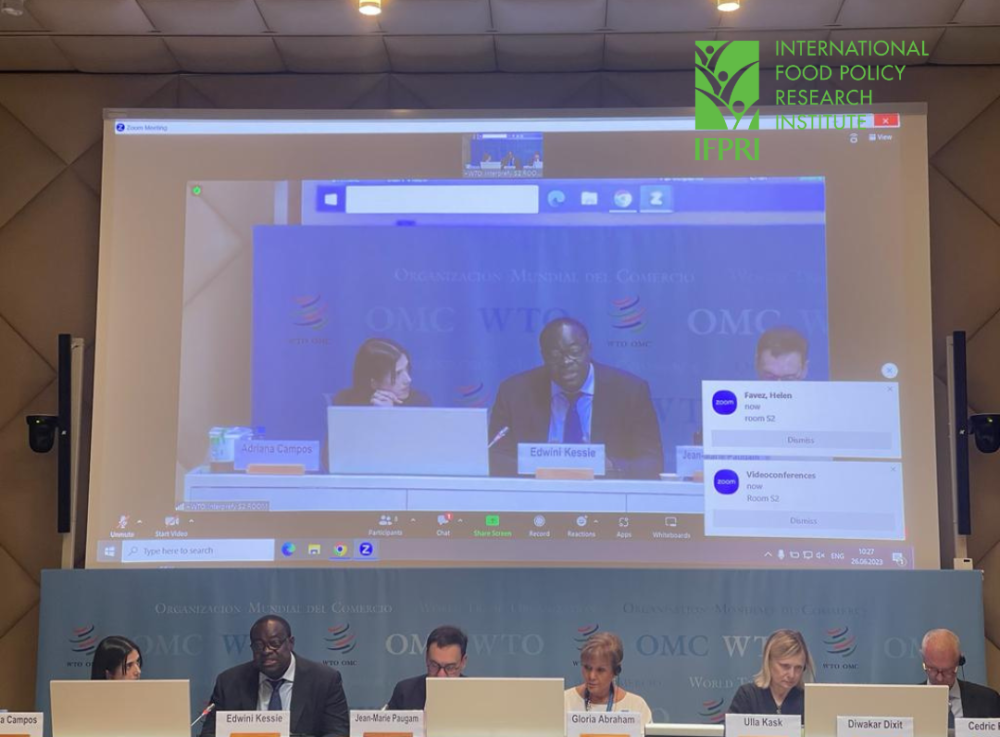The network was established during a meeting attended by World Trade Organization (WTO) ambassadors, permanent representatives and agricultural delegates of 17 Latin American countries.

San Jose, 28 July 2023 (IICA). The Inter-American Institute for Cooperation on Agriculture (IICA) and the International Food Policy Research Institute (IFPRI) launched a network of agricultural negotiators in Latin America, which will seek to strengthen the positioning of those countries in multilateral forums that address matters related to the agrifood sector, such as the World Trade Organization (WTO).
It will also develop concrete negotiation proposals in line with regional interests, generate consensus and work agendas to negotiate in the WTO and promote capacity building in international agricultural negotiations in Latin American ministries of Agriculture, Trade and others.
The network will also seek to identify potential partnerships with other WTO nations or blocs to increase support for specific Latin American positions, as well as analyze challenges and opportunities to increase the region’s agrifood exports.
The network was established during a meeting held in Geneva, Switzerland, which was attended by WTO officers responsible for agricultural trade in Latin America.
In attendance were Jean Marie Paugam, WTO Deputy Director-General; Edwini Kessie, Director of the Agriculture and Commodities Division of the WTO; Valeria Piñeiro, Acting Head of the Latin American Region and Senior Research Coordinator in the Markets, Trade and Institutions Unit of IFPRI; trade specialist Adriana Campos of IICA; and international consultant and advisor to IICA, Gloria Abraham.
The network is comprised of various stakeholders involved in WTO negotiation processes: officers responsible for agricultural trade in the ministries of Agriculture of Latin American countries, agricultural delegates in Geneva and officials responsible for leading negotiations in the countries themselves.
During their first meeting, the members of the network engaged in dialogue on the current status of agricultural negotiations ahead of the upcoming WTO Ministerial Conference (in February 2024), in particular, with respect to: perspectives on the pace of negotiations in Geneva, the interests of different parties, defining the region’s position on issues related to its interests, possibilities for regional integration, and the more active involvement of Latin American representatives in leadership roles.
WTO ambassadors, permanent representatives and agricultural delegates of seventeen countries in Latin America attended the event.
More information:
Institutional Communication Division.
comunicacion.institucional@iica.int











